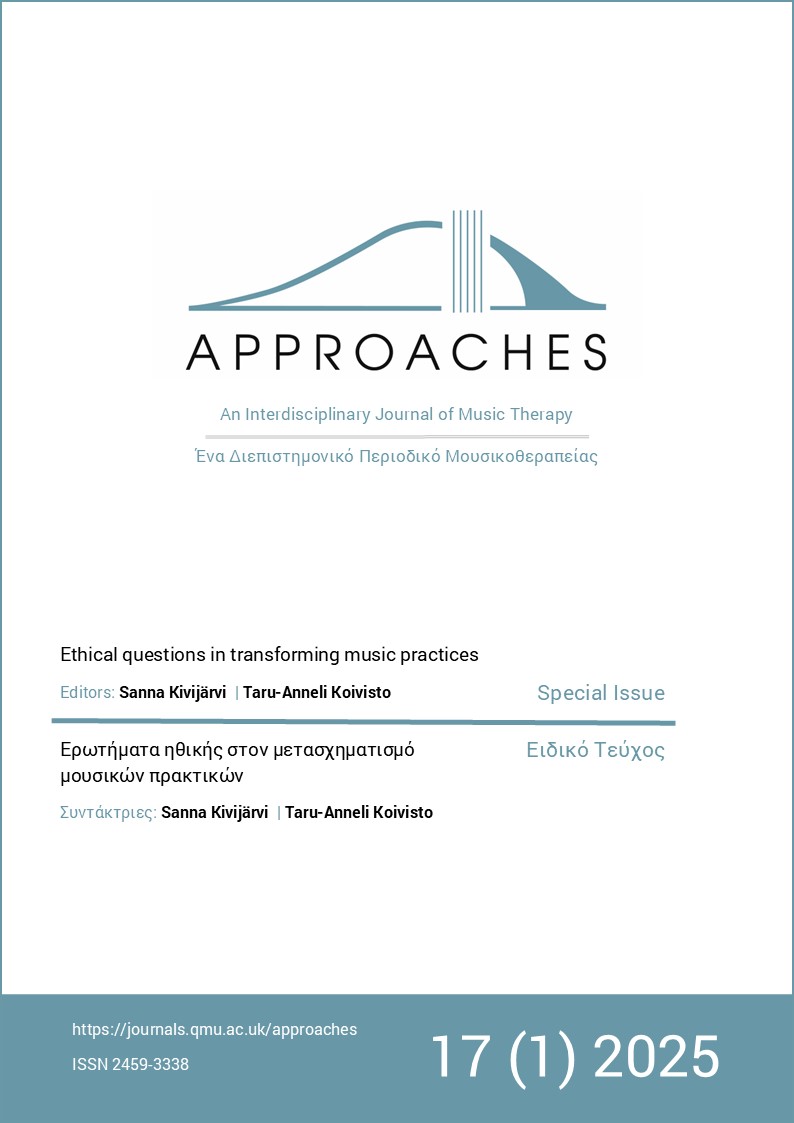Breathing war, dreaming connection: Dialogue as an ethical foundation for collaborative work of Palestinian and Jewish music therapists in Israel
DOI:
https://doi.org/10.56883/aijmt.2025.615Keywords:
music therapy, war-zone, ethics, culture-sensitive dialogueAbstract
A collective of six Palestinian-Arab and Jewish music therapists, researchers and educators, and citizens of Israel convened to explore and foster the specific needs of Arab music therapists in Israel. As a primary ethical step, we embarked on a participatory study, delving into our personal and professional experiences as music therapists in a country deeply affected by long-term trauma and conflict. All group members participated in a 90-minute focus group designed as a semi-structured interview, with one member acting as an interviewer and another as a translator. The interview was recorded and transcribed. It was analysed by three group members, Jewish and Arab, to afford triangulation. Following three successive rounds of thematic analysis, a 90-minute Zoom consultation solidified the emergence of five key themes: (1) blurred boundaries challenge ethical thinking; (2) shaped by war; (3) fragmented identities; (4) cultural loneliness; and (5) music in therapy – between polarisation and shared identity. Several themes also had subthemes. The findings were shared with all group members, who provided additional input. The discussion highlights the profound implications of cultural division and hierarchy on all group members, the lack of authentic and culture-based professional growth, and a gap in culturally-sensitive professional ethics for Palestinian-Arab participants. We grappled with the ethical challenge of holding multiple truths as Israeli music therapists, while embracing the hopeful notion that music can serve as a unifying medium, bridge cultural divides, and foster a pluralistic approach to music therapy.
Downloads
Published
Issue
Section
License
Copyright (c) 2025 Efrat Roginsky, Tamar Hadar, Nihal Midhat-Najami, Buran Saada, Rozan Khoury, Maimounah Hebi

This work is licensed under a Creative Commons Attribution-NonCommercial-NoDerivatives 4.0 International License.




